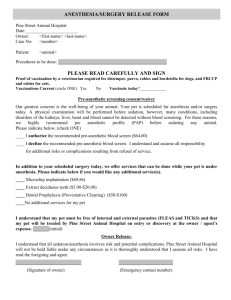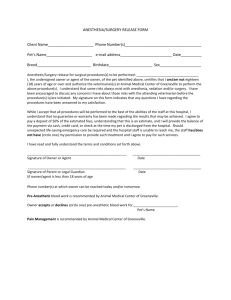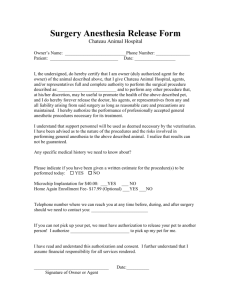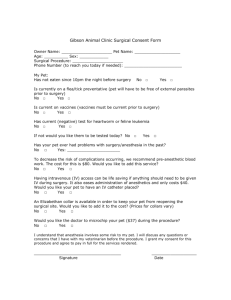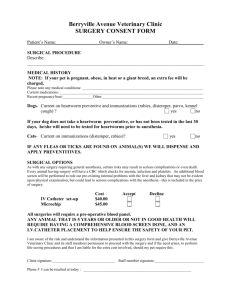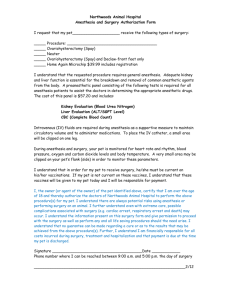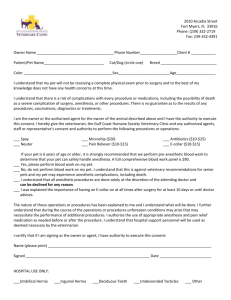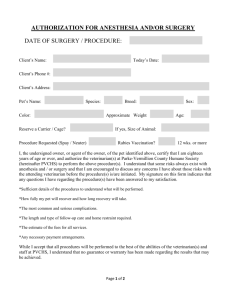Surgery Options - Wetaskiwin Animal Clinic
advertisement
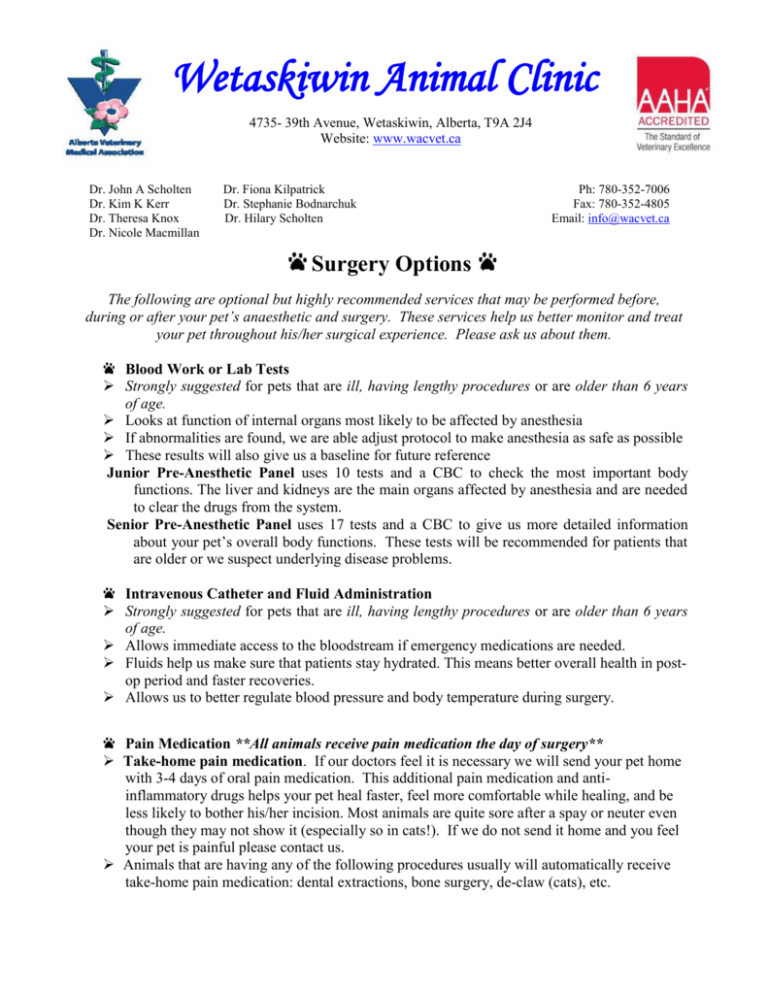
Wetaskiwin Animal Clinic 4735- 39th Avenue, Wetaskiwin, Alberta, T9A 2J4 Website: www.wacvet.ca Dr. John A Scholten Dr. Kim K Kerr Dr. Theresa Knox Dr. Nicole Macmillan Dr. Fiona Kilpatrick Dr. Stephanie Bodnarchuk Dr. Hilary Scholten Ph: 780-352-7006 Fax: 780-352-4805 Email: info@wacvet.ca Surgery Options The following are optional but highly recommended services that may be performed before, during or after your pet’s anaesthetic and surgery. These services help us better monitor and treat your pet throughout his/her surgical experience. Please ask us about them. Blood Work or Lab Tests Strongly suggested for pets that are ill, having lengthy procedures or are older than 6 years of age. Looks at function of internal organs most likely to be affected by anesthesia If abnormalities are found, we are able adjust protocol to make anesthesia as safe as possible These results will also give us a baseline for future reference Junior Pre-Anesthetic Panel uses 10 tests and a CBC to check the most important body functions. The liver and kidneys are the main organs affected by anesthesia and are needed to clear the drugs from the system. Senior Pre-Anesthetic Panel uses 17 tests and a CBC to give us more detailed information about your pet’s overall body functions. These tests will be recommended for patients that are older or we suspect underlying disease problems. Intravenous Catheter and Fluid Administration Strongly suggested for pets that are ill, having lengthy procedures or are older than 6 years of age. Allows immediate access to the bloodstream if emergency medications are needed. Fluids help us make sure that patients stay hydrated. This means better overall health in postop period and faster recoveries. Allows us to better regulate blood pressure and body temperature during surgery. Pain Medication **All animals receive pain medication the day of surgery** Take-home pain medication. If our doctors feel it is necessary we will send your pet home with 3-4 days of oral pain medication. This additional pain medication and antiinflammatory drugs helps your pet heal faster, feel more comfortable while healing, and be less likely to bother his/her incision. Most animals are quite sore after a spay or neuter even though they may not show it (especially so in cats!). If we do not send it home and you feel your pet is painful please contact us. Animals that are having any of the following procedures usually will automatically receive take-home pain medication: dental extractions, bone surgery, de-claw (cats), etc. Options not required for surgery: Microchipping: all of our spays and neuters get a complimentary spay/neuter tattoo but because tattoos can fade and become illegible we recommend a microchip as well which we can implant during their anesthetic Vaccines: we can do vaccines the day of surgery. It is important to note that the body does not always mount a full response to the vaccines when they are given while the body is stressed (as they are during surgery) and your pet may not get the full benefit of the vaccine. Remember that if it is their first set of vaccines they will need a booster in 3-4 weeks.
